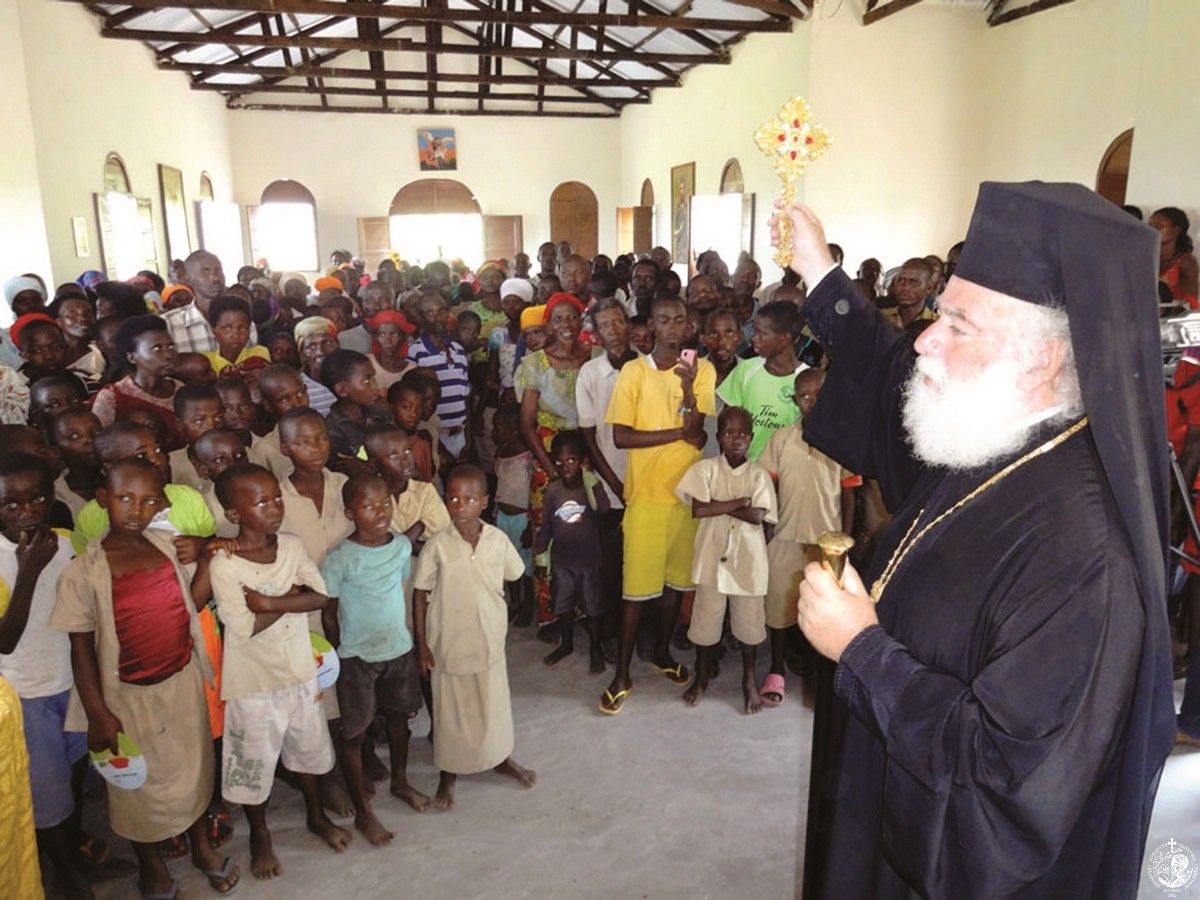In the heart of the African land lies a blessed by God country, Burundi. Greenery covers plains, slopes and hills. However, this earthly part of paradise became the arena of a ruthless conflict. Two tribes, two ethnic groups, the Tutsi (cattle) breeders and the Hutu farmers, could not find a peaceful way of coexistence. They threw themselves into an interminable fight of mutual extermination.
The civil war lasted for thirteen years. Human discord ravaged and scarred the country. Cities, villages, hospitals, houses, roads were destroyed. 300,000 people lost their lives. 600,000 people had to abandon their homes. Families were broken up. Women lost their husbands and children. Children were left alone, unprotected, orphaned.

After the horror of war, victimizers and victims of the civil absurdity are trying to forget the bloodstained past and rebuild the country. The refugees return from the neighboring countries in thousands looking for their relatives and their mud houses. Plenty of them find nothing.
If the unity of people is the ultimate purpose of the Divine Providence and witnessing this unity the authentic way of carrying out the missionary work, then every single faithful Orthodox Christian realizes how much the ravaged land of Burundi needs to accept the surplus of the Eucharistic experience. However, the idea that remains a word, can only change words. Only ideas that take flesh are capable of touching and reforming the man.
On this principle three years ago began a genuine by God effort of reforming the man through the foundation of the Diocese of Rwanda and Burundi. At first the prospects of this effort were met with wariness and the cynical mistrust of our times. However, the fruits of composition and recreation of what it means to be human in a fair, peaceful and viable world, have already started ripening in this spiritual field of Africa. The loving contact with the fellowman as an image of God was the only “fertilizer” which was proven useful to this cultivation.
I became participant in these fruits myself during my first missionary course in Burundi. Images, emotions and moments are hard to depict on a piece of paper in the conventional way. However, on that bright morning of 23rd February 2013 I made a promise to the hundreds of orphaned children of the civil war who are accommodated at the “Roof of Love” in the Buramata district. I promised to share with the whole world a story of faith and endurance at a time when the beauty of the truth “I love my neighbor, therefore I am”, has been replaced by the overrated principle “I have, therefore I am”.
The settlement was put up with the help of a group of doctors from Greece who decided to make the word “offer” a full-time occupation and an aim of life, the Heart Doctors. This shelter operates thanks to the large or small contributions of the people who believe that the Word of God should be heard in the mud huts, in the thatched churches of Africa.

This shelter embraces children who saw their parents being cruelly killed by brotherly hand. Children who could not smile because the pain of loss had chained the smile on their lips. Children whose life was hanging by a thread because they expected to eat garbage, grew up on the streets and in the mud and were threatened by plain diseases.
In this shelter the orphans of the civil war earned the right to continue taking seriously what the adults had difficulty in accepting: dreams. They earned the right to continue believing in resurrection as a possibility of a decent future. They earned the right to tame the rough waves of life, which showed them its relentless face so early, and seek the haven of survival. Finally they earned the right to preserve childhood as an existence open to God.
Christ said: “Let the children come to me, do not hinder them; for to such belongs the kingdom of God” (Mark, 10, 13-14). This commandment becomes action in this corner of the African continent. This commandment turns into a hug for the children who were scarred by the conflicts of the adults. Here is reconstituted the children’s shattered worldview, here is reformed the impaired by the specter of death children’s identity, here returns the original beauty of the children’s soul in order to implement the Words of the Lord “Whoever does not receive the kingdom of God like a child, shall not enter it” (Mark, 10, 15-16).
At a time of daily transformations which affect almost all aspects of our life, the ability of the Church to contribute to the creation of a culture based on mutual respect and solidarity is disputed. The Roof of Love bears witness to the fact that the Church in its earthly presence and action embraces, reforms, renovates the world. It ministers to the man, articulates its own life proposal and prioritization, on top of which is the child as a dynamic carrier of a promising prospect for a world “practicing the truth in love”.
Theodore II
Pope and Patriarch of Alexandria and all Africa
In the Great City of Alexandria, on 1st March 2013

